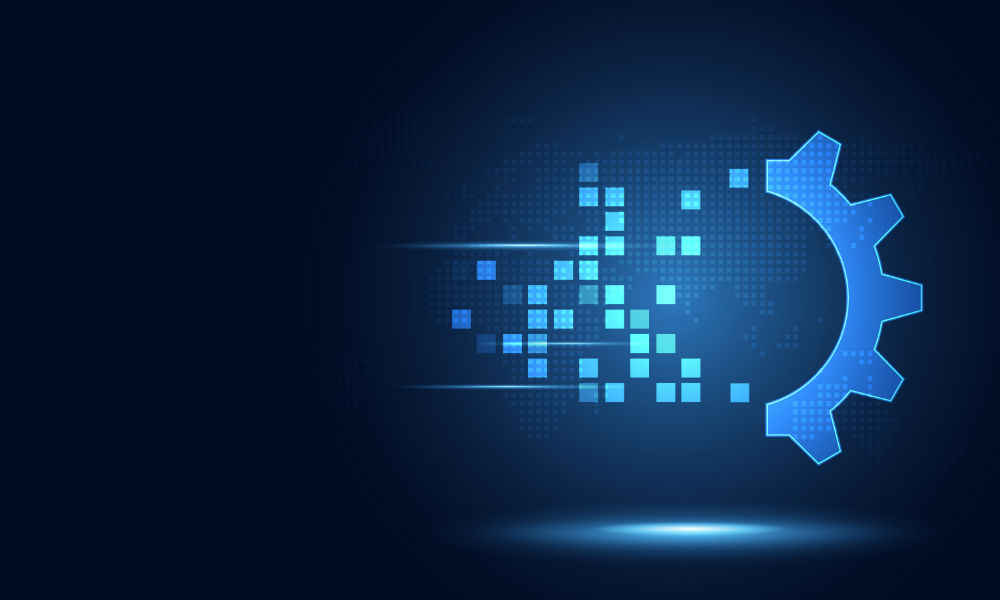
Enterprises are just beginning to scratch the surface of how today’s three disruptor heavyweights – AI, Internet of Things and blockchain – will transform their organizations. Current conversations and pilot projects largely center on these technologies individually. But the real disruption is in the intersections between them, and the ways in which they can be used together to bring forth completely new approaches to managing supply chains, data, transactions and more.
The potential benefits of solutions that integrate AI, IoT and blockchain are endless. Projects that launch from intersections between these technologies will overcome many of the last mile blockchain problems that have barred adoption to date.
- Connecting physical assets to the blockchain: Across a number of industries, we’re seeing an increasing need to digitally track physical assets. Supply chains are a great example of this. With blockchain technology, corporations can use QR codes or RFID technology to identify units of products. This can be anything from a portion of a food crop, a shipment of chemicals from an oil rig, cosmetics ingredients, auto parts, etc. With a dedicated code or RFID tag, each unit can then be assigned a digital identifier that is traceable on the blockchain. The identifier stays with the item or group of items through the entire lifecycle, with every step of the process recorded on an immutable, secure ledger. For food supply chains, this means the entire history of a produce item – from seed to harvest, to processing, to documentation, to shipment, to grocery store – can be viewed by simply scanning the code attached to it. Car buying is another use case where the transformative benefits are clear: imagine the transparency that would be introduced into purchasing a used car if a consumer could scan a code attached to that car and see its entire history across manufacture, maintenance, parts replacements and previous owners. In some industries where tracking liquid (or products such as LNG) is required, advanced technology has been developed to grab metrics such as volume and flow directly from existing sensors in order to track product.
- Transforming databases for IoT information: In many ways, blockchain can solve the most common challenges faced in managing data today: security, authenticity, access and scalability. As connected devices continue to drive massive growth in the volume of corporate databases, enterprises are looking for new ways to manage and leverage the data they are storing. Blockchain provides a way for corporations to implement data proof, trust and automation directly at its source – on IoT devices – and then allow that data to become transactive and part of new economies. Health and fitness wearables are one of many examples for how this could take shape in the real world. Feeding data from smartphone apps and wearable devices into a blockchain-based medical records system would allow care providers to view the entire health picture of their patients in a secure way. Then, they could leverage smart contracts on the blockchain to transact with that data, using it to drive down insurance premiums, make payments and incentivize patients to engage in healthy activities.
- Predictive analytics at scale: It’s exciting to consider how AI and predictive analytics can be layered onto blockchain data. In the case of food supply chains and farming, AI could be applied to the extensive store of crop information living on the blockchain, to predict and inform patterns in weather, inventory, shipping delays or anything else that may impact decisions about planting, harvesting and distributing food. Similarly, this type of application could identify buying patterns among consumers and predict supply shortages, helping corporations improve the accuracy of their ordering and manufacturing volumes.
Beyond how AI can bolster blockchain, there are benefits blockchain can offer to AI tools as well. Leveraging blockchain data to improve trust and accuracy in AI algorithms and predictions can result in better data models and smarter financial systems. A greater depth of context and information that can be fed into machine learning systems from blockchain stores can ultimately make the tech smarter.
The scenarios outlined above point to some of the last mile problems that are hampering wider and faster adoption of blockchain solutions. The more we connect AI, IoT and blockchain, the more seamless enterprise applications using this technology will become. By automatically connecting edge devices and systems with blockchain and layering AI on top of those deployments, corporations will truly be able to transform every business process from their supply chains, accounting, sales tracking, distribution, compliance, security strategic planning and more.
Steve McNew is a senior managing director within the Technology practice of FTI Consulting and is based in Houston. He helps clients evaluate and implement blockchain solutions and builds cost-effective and defensible strategies to manage data for complex legal and regulatory matters. Steve is an expert in blockchain, Bitcoin and information and data security. He completed studies in blockchain and cryptocurrency at MIT and is a member of The Wall Street Blockchain Alliance. He has led engagements involving blockchain assessments, pilot projects, and software selection and implementation and is frequently engaged as a cryptocurrency expert in disputes, investigations, and litigation.
Edited by
Maurice Nagle